Career and Technical Education
ICCTE – Community, Career and Technical Education
Mission: To provide rigorous and relevant educational pathways that assist students in
developing essential work skills to be successful in a global economy.
Business Technology Education provides the knowledge and skills in demand today.
As technology continues to impact business and industry, today’s employee, whether
managerial or support staff, needs extensive knowledge of software applications and
database management. Proficiency in keyboarding, spelling, punctuation, grammar and
oral communication is expected across all economic sectors. Increasing office
automation and organizational restructuring will continue to require that men and women
alike be more productive and skilled in coming years.
Family and Consumer Sciences is an academic discipline in which classes focus on a
broad spectrum of learning to develop better work habits, learning skills and personal,
social and civic skills. FACS affects students’ abilities to cope with and succeed in
today’s complex world, as well as help students develop better decision-making skills for
increased personal effectiveness. FACS gives students the guidance they need to make
better decisions about school, careers and life after school, as well as helping build
awareness of the world. Some areas of study include Career Decisions, Job Skills, Early
Childhood Education, Culinary Arts, Communication Skills, Sewing Basics, Kitchen
Safety and Sanitation, Nutrition and the Food Pyramid, Intrapersonal Skills, and
Etiquette. Family and Consumer Sciences combine social science, including its emphasis
on the well-being of families, individuals, and communities, and natural science with its
emphasis on nutrition and textile science.
Technology Education prepares students for the challenges of a dynamic world by
promoting technological literacy, leadership and problem solving, resulting in personal
growth and opportunity. Some areas of study will include Audio Communications,
Computer Aided Drafting, Flight Technology, Structural Engineering, Laser Technology,
Computer Numerical Control, Electricity, Materials Processing, Research &
Development, Energy & Power, Computer Graphics & Animation and Forensic Science.
Public Service Education provides educational information on occupations such as,
Ambulance Driver, Detective, Firefighter, Guard and Police Officer. Study areas will
include health occupations, the history of law enforcement, main police models,
categories of crimes, duties and responsibilities of agencies, and criminal justice
framework.
Language Arts
The goal of the language arts department is to help all students increase their reading, writing, speaking, listening, and viewing skills. Mastering these skills will enable them to successfully progress to the next grade level. Students will be able to use these skills in many settings, such as school, home, and eventually work. The study of Language Arts provides opportunities for students to learn a variety of literature and to be creative at the same time. The Language Arts department consists of five major areas. These are reading, writing, listening, language and literature. All classes are designed to maximize every students’ potential for academic success. Inclusion classes, where a language arts teacher and an exceptional education teacher work together in the classroom, are offered at all three grade levels. The teachers in these classes work together to provide strategies to help students with specific learning disabilities, low-achieving students, and regular students achieve success through the language arts curriculum.
Students complete writing assignments in all of their classes during the school year. These assignments are placed in a writing folder which each student has. They are responsible for maintaining the folders which are kept on their team. Our language arts department is committed to preparing our students in the best ways possible for these writing assignments. In addition, students will face periodic assessments to help prepare them for their Florida Comprehensive Assessment Tests (FCATs).
Students will be required to read a book per month outside of the classroom and create projects based on their reading. The students will work on these projects outside of the classroom environment and turn them in on the due date. Language arts classes read and evaluate many different materials, including grade-level literature texts, young adult novels, newspapers, magazines, and internet sites.
Our language arts teachers want all students to read, read, read! Reading for pleasure is very important. The language arts department looks forward to and are committed to providing the best possible environment to ensure your students successful learning experience.
Math
In middle school mathematics, students and teachers focus on the curriculum set forth by the Florida Sunshine State Standards (SSS). This prepares all students for the Florida Comprehensive Assessment Test (FCAT) and helps them gain math skills needed in their lives.
Throughout the year students will be exploring multiple mathematic concepts from the five stands of mathematics, which are number sense, geometry, algebra, measurement, and probability. As a department, it is our goal to engage students in class with hands-on activities and lessons relating to the real world.
ESOL stands for English for Speakers of Other Languages and refers to the services offered to English Language Learners (ELLs) with a foreign language background. ESOL services in Pasco county are designed to provide academic, cultural, and social support to ELLs, as well as to assist teachers and school staff in understanding and communicating with these students and their parents.
This vision is implemented by conscientiously serving the needs of the different vested stakeholders:
Ø Students: Providing ESOL services and accommodations within Pasco’s inclusion program model to ensure children are receiving comprehensible input that will allow them to succeed academically at grade level.
Ø Teachers: Providing assistance and resources to help teachers understand the ELL needs and how to modify instruction to meet those needs.
Ø Parents: Facilitating school-home communications so that parents are informed of their child’s progress, or need for further involvement.
Ø School Administration: Proctoring during testing, translating documents, and interpreting for administrators, guidance counselors, nurses, SRO, etc.
Ø District School Board of Pasco County: Reporting on student progress and evidence of teacher and schools compliance with META mandate.
The ESOL team is composed of
o Mrs. Adrienne Jarrell, ESOL Resource Teacher
o Ms. Maria-Elena LaFlam, ESOL Instructional Assistant
In addition, Mrs. Shaunttee Butcher is the Assistant Principal with administrative responsibility for ESOL at Paul R. Smith Middle.
Academic services provided to ESOL students: In addition to visiting the classrooms of ELLs needing assistance, Ms. LaFlam provides tutoring in the following areas: Language Arts, Mathematics, Science, History, Geography, Reading, Writing, and Home Economics. Tutoring is held in the ESOL Homeroom (03-106) every morning from 7:45 to 8:45, and on Tuesdays, Wednesdays, and Thursdays from 1:02-1:32 p.m.
Contacts:
o ESOL Office 03-122, (727) 246-3328 (voicemail – Spanish also)
o ESOL Homeroom 03-106, (727) 246-3312
o PRSM Main Number (727) 246-3200
The Who’s Who.
Julia Brooks
Julia is the ESOL Instructional Assistant here are Paul R. Smith.
History
6th Grade: We explore the places, people and culture of Asia, Africa and Oceania. This study helps students to develop an understanding of history and to appreciate what surrounds us.
7th Grade: We continue to explore places, people and cultures with a focus of Europe, and the Americas.
8th Grade: Students are taught to understand the development of the United States, while looking at connections to the past. This helps to prepare students for the future, as they are members of our democratic society.
The knowledge of history, geography, economics, political process, religion, ethics, diverse cultures, and humanities will help our students succeed in school, society and work.
Physical Education
Our focus is to promote a lifetime of physical fitness and wellness. It is our intention that every student participate and learn at a level that will help them continue to be active long after their attendance at PRSMS. To achieve this, the physical education department offers a variety of sports and activities played in 3 week increments. To participate in interscholastic athletics, students must be in the seventh or eighth grade, maintain a 2.0 grade point average, and have passed five out of six subjects during the previous quarter. such as: Soccer, Flag Football, Rhythmic Gymnastics, Basketball, Dance, Ultimate Frisbee, Volleyball, Softball, Gatorball, and Track & Field.
In addition to offering these units, we take formal measurements of physical fitness including a cardiovascular endurance test every other week and tests of flexibility and muscular endurance once every 9 weeks. Students are required to keep results of these tests and work associated with particular units available in a Physical Education Portfolio. It is our hope that each student learns how to move appropriately, understands the key concepts of games and skills, as well as enjoys particular aspects of each unit we present.
Science
Our classes work to develop a greater understanding of scientific concepts and thought. By incorporating technology, innovative hands on activities, and current scientific theory in our classrooms, our students become motivated to discover, investigate, and understand scientific phenomena. We challenge and inspire our students to be life long, scientific learners.
6th grade: The purpose of this course is to study concepts of the life, earth / space, and physical sciences, and their applications to everyday life.
7th grade: The purpose of this course is to provide opportunities to further investigate and develop scientific communication skills. This course continues to extend the concepts of life, earth/space and physical sciences and their applications to the real world. Seventh grade curriculum is supplemented one or more field trips.
8th grade: The purpose of this course is to extend and refine students investigative and scientific communication skills. This course provides a strong emphasis on FCAT preparation incorporating the concepts of earth / space, and physical sciences and their application to everyday life. It is the goal of this course to develop a greater scientific understanding through a hands on approach.




